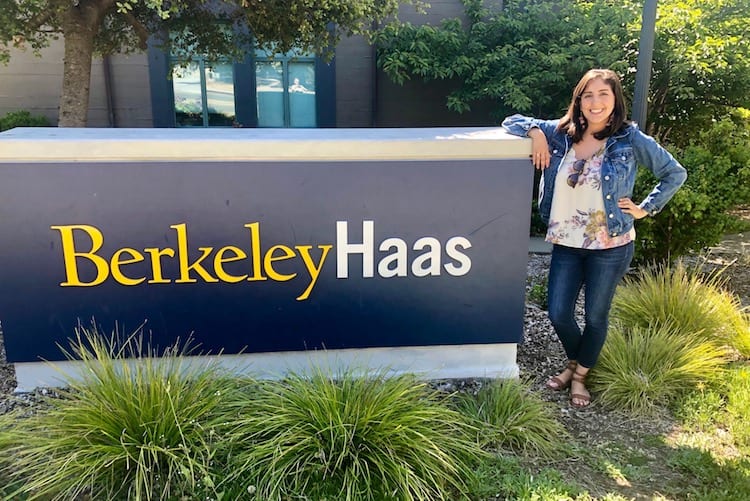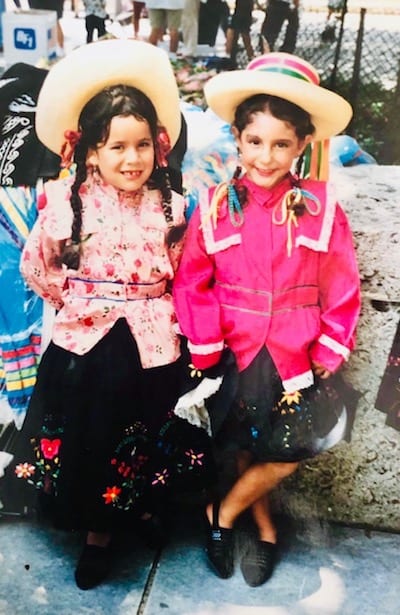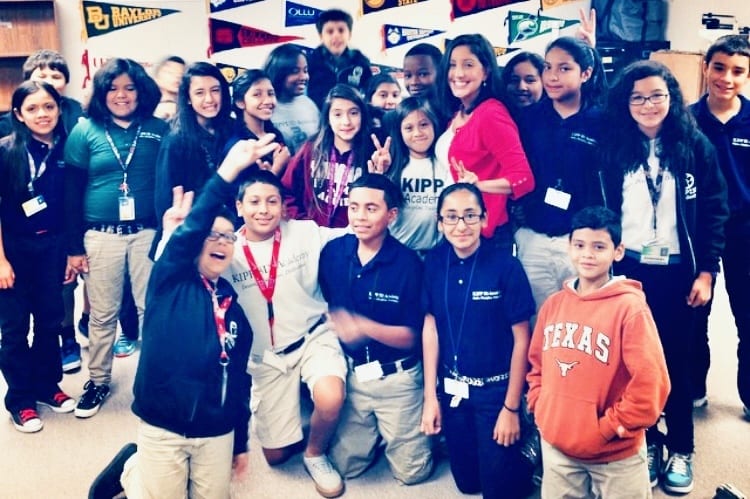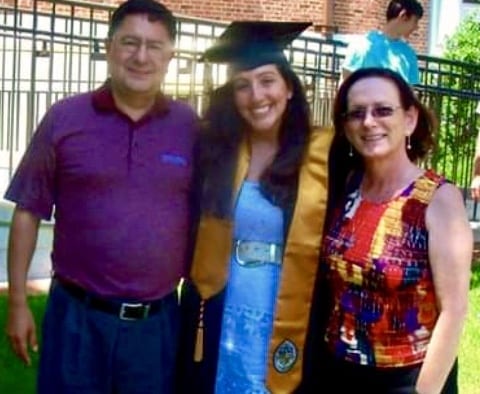
In honor of Latinx Heritage Month, we’re featuring interviews with members of our Latinx community.
Paula Fernández-Baca, MBA 21, grew up in Houston, a self-proclaimed very proud Texan. Her parents immigrated from Peru to the U.S. during the 1980s. Like many first-generation kids, Fernández-Baca grew up straddling the cultures of two worlds. We talked to Fernández-Baca about her family background & love of dance, her passion for empowering underrepresented minority students through education, and her new life at Haas.
Tell us a bit about your family background.
Nearly all of my family is still in Peru, with the exception of my parents and two brothers. As a child we’d go to Peru to visit over the summer, and I was basically “the American cousin.” My family there would call me gringa and make fun of my Spanish, so while of course everyone loved each other, I didn’t always feel like I could fully “fit in.” In Houston on the other hand, the Hispanic community was (and still is) very centered around Mexican culture. I guess growing up, people weren’t as culturally aware back then, because often people would get so confused when I’d tell them I was Hispanic but not Mexican. It was weird.

That being said, my family did find Peruvian community in Texas. My parents were involved in the Peruvian Association of Houston, and through that they helped start a dance group called Grupo Folklorico Mi Perú. The community built from that group kind of became my extended family in the U.S. A lot of the kids who I danced with I’m still in touch with. They were kind of like my cousins growing up, because my real cousins were a plane ride away.
Did you love to dance as a kid?
I love Latin dancing and have a lot of childhood memories of dancing. We’d host dance practices at people’s houses that would eventually morph into big parties of salsa, Colombian cumbia, and whatever was popular in the Latin community at the time. In general I gravitate to the performing arts because of my personality, so as I’ve gotten older, I’ve taken formal salsa classes and learned how to do other styles, like bachata for example.
How did your career in education align with your heritage?
Going through Teach for America and teaching at KIPP (a charter school network) was important to me because I wanted to serve the community I grew up in. After going to high school and college on the east coast, I came back to Houston and taught 5th and 6th-grade Spanish, both a “non-native” Spanish I class, and a “native-level” class for kids that came from Hispanic backgrounds but had limited Spanish literacy skills. In my native-level class, I spent a lot of time trying to empower my Hispanic students to think about themselves as the future leaders of the U.S., and that they should take pride in both their culture and in learning Spanish. Even though I haven’t been a teacher for a while now, I hope I can use my career to continue to empower people who come from similar backgrounds as me to see their culture as an important part of their leadership—and not something they should accommodate for others.

Have you found a welcoming community at Haas?

I knew business school was going to be a very different experience, and during the application process I was really worried about whether I’d find people who’d share my values. I went to high school at a private boarding school in Connecticut, and then to Johns Hopkins for college, so I’d been a part of predominantly white institutions for higher education before.
I got a great education in college, but have had to go on my own journey to try to figure out how to express my heritage and identity in a such a way that people around me see it as valuable, rather than “oh, that’s a cute quirk you have.” Because of that, I was trying to find a business school community where I’d feel valued and accepted. What Haas has done over the last year (in terms of diversity, equity and inclusion) was a selling point for me, even though truth-be-told I was cautiously optimistic about it. I’ve heard a lot of grand overtures from different institutions about these type of issues in the past, and it’s often not implemented well. So far, I’ve been generally pleasantly surprised. I have also found a Latin community both with people in The Consortium and among international Latin American students. Everyone here has been so, so kind.